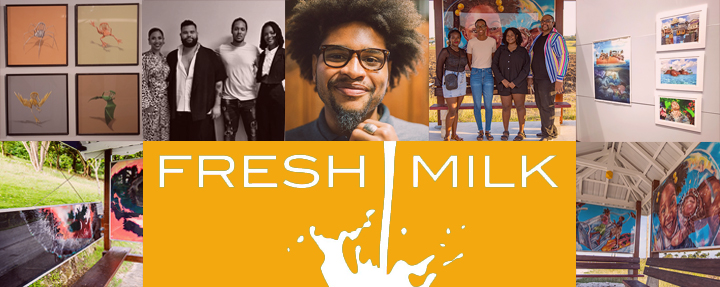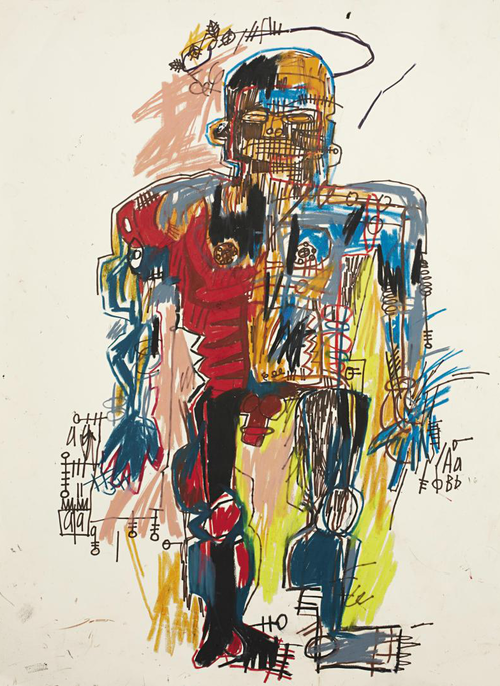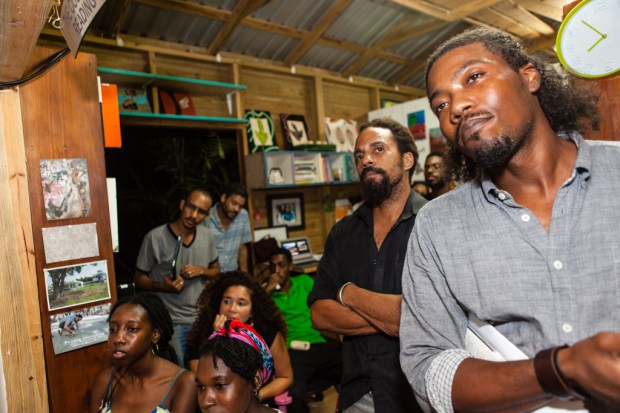As part of his residency at Fresh Milk, Toronto based, Trinidadian-Bahamian writer Christian Campbell hosted a workshop titled The Art of the Essay/The Essay on Art on December 6 & 13, 2014. The two days focused on critical essays on art, not only as a form of criticism but also looking at the essay as an art form in itself. Fresh Milk Books team leader Kwame Slusher shares a two part review of the workshop below:
The word origami means folding paper. For it to be authentic the paper folder is expected to create a paper sculpture without cutting, gluing or marking the paper in any way. Despite these restrictions, the possibilities of paper sculptures from a simple flat piece of paper are inexhaustible.
On Saturday December 6th, the Fresh Milk Art Platform hosted the first half of a two day workshop titled, ‘The Art of the Essay/The Essay on Art’. Led by the Toronto based, Trinidadian-Bahamian poet and cultural critic, Christian Campbell, the workshop was geared toward encouraging us, as artists and writers, to rethink and reexamine our idea of the essay. Campbell demonstrated to us that, like a flat piece of paper, the essay can also take many different forms.
In our first activity we were challenged to analyze an elegiac essay titled Etta James: Her Lonely Sound by Hilton Als. We looked at how his piece deviated from the traditional form of the essay while simultaneously maintaining an analytical authority—how Als expertly weaves the personal with the analytical.
After that, we watched Janis Joplin’s very dark rendition of Summertime on YouTube, and wrote a paragraph long response, bearing in mind the techniques used in Hilton Als’s essay. When we were finished we all read our responses aloud, and Campbell critiqued them. Some of us he encouraged to put more of ourselves in the essay and others to be a little more analytical, but on a whole it was clear that we all were beginning to understand the potential elasticity of the form.
At the end of the session Campbell passed out printed copies of Elizabeth Bishop’s ‘The Map’ to be read for the next session, which will be held on Saturday December 13th, from 10 to 12. As we packed notebooks and pens or pencils away, Fresh Milk Director Annalee Davis served slices of cake/pudding, while we were locked in lively discussion on what it means to be a “…millennial in the Caribbean right now”, and the inexhaustible shapes in which we can sculpt the space/s around us.
In a recent interview, a Guyanese art student at the Barbados Community College said that she was given an assignment where she had to do an abstract self portrait of herself. She decided to focus on her origins, and the result was an overhead topographical map of Guyana. She wanted the art work to show a landscape with all of the bumps, hills and groves that correlate with the complexity of a person’s emotional layers.
The second and final session of The Art of the Essay/The Essay on Art was really about creating maps. Like the art student, we were challenged to move away from the established contours and chart emotive and critical pathways with our writing. Christian challenged us to navigate our own ways through perilous territory—ourselves.
The first thing we did was to review the reading assignment that we were given from the previous week, The Map by Elizabeth Bishop. After a not too close reading of Bishop’s poem, Christian brought up a map of Barbados on his Mac and asked us respond to it, keeping the poem in mind. The result was the charting of emotional territory as we found unique ways of connecting with the familiar landscape; from immediately coherent political statements to abstract, but poignant, word associations.
After that we looked at another reading assignment that we got during the week via email. It was an essay called Never Trust a Big Butt with a Smile by Greg Tate, which explored implications of the phrase ‘Black Comedy’ amongst other things. What was immediately apparent, even before the subject matter of the article became clear, was Tate’s use of colloquialisms. After discussing the reading, we were encouraged to make a list of all the colloquial words and phrases we could think of within a given amount of time.
Next, Christian brought up the image of Jean Michel Basquiat’s Self-Portrait on his Mac and challenged us to respond to it using some of the same colloquialisms that we had written down, or any others that we could think of during the free writing exercise. This proved problematic, because the use of dialect and colloquialisms seemed to peel away the seriousness of our responses to Basquiat’s work. We had mapped ourselves into awkward territory and tried to laugh it off. This exercise really forced us consider our relationship with standard English and dialect, and the existing linguistic hierarchy that privileges the former over the latter, ultimately considering our own identities.
There is always that fear of transgressing an existing border, but the workshop showed us that we need to untangle ourselves from preexisting imaginary lines. We need to toss our compasses, and form our own Keys and Legends, and really try to chart our own personal geographies.












































